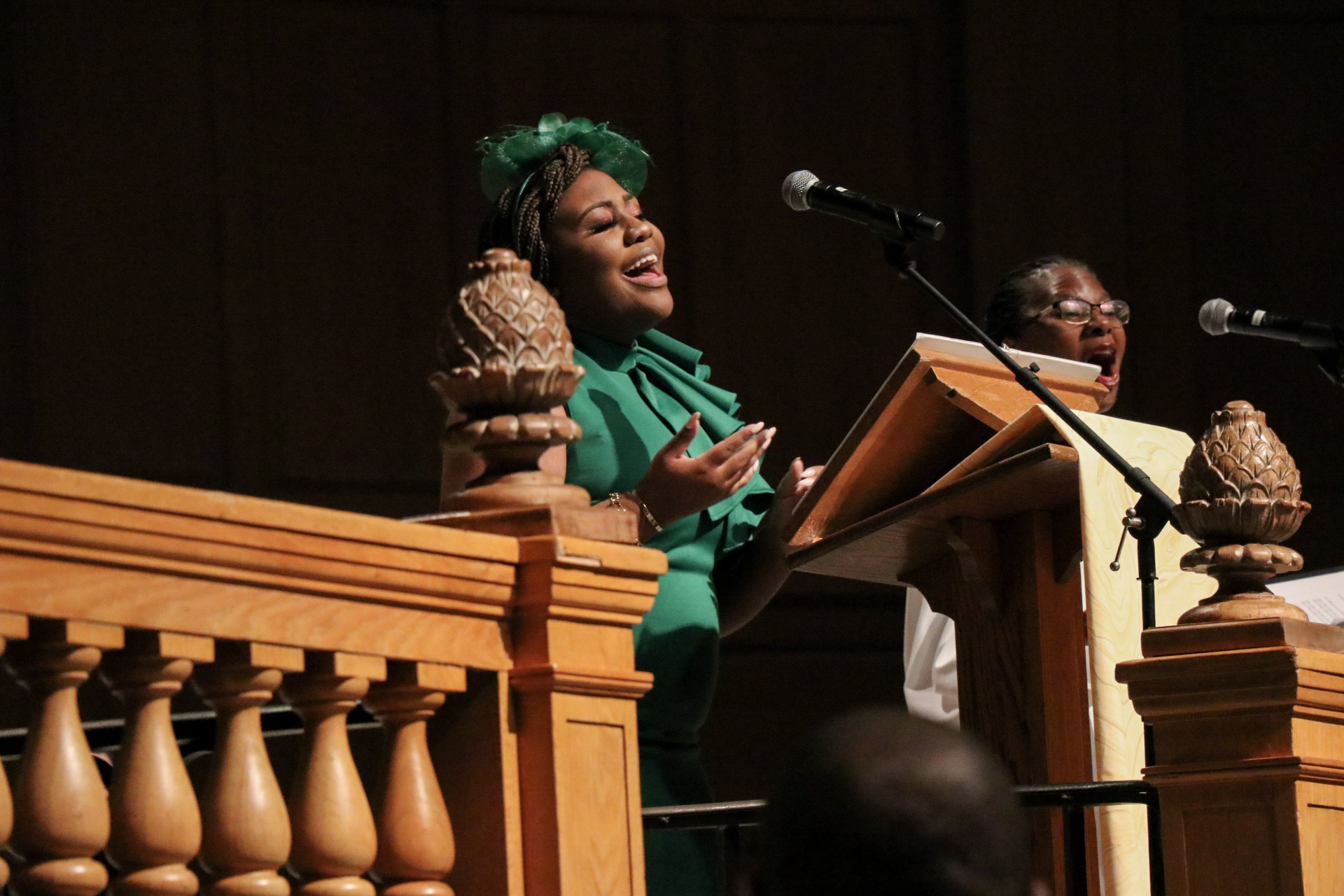The Art of Ministry curriculum focuses on vocational formation, integrating classroom and internship-based learning to introduce students to the life and work of ministry.
Students have the opportunity to be deeply involved in community engagement and internships throughout the region of our state, engaging ministries addressing poverty, child welfare, LGBTQ advocacy, chaplaincy, palliative care, community-supported agriculture, racial justice work, community organizing, refugee resettlement, prisoner re-entry, disability accommodation, and advocacy for victims of sexual assault.
- In the fall of the first year, students take a one-semester introduction to ministry course.
- In the next two academic years or in the intermediate summers, students complete one, 300-hour internship placement in a congregational, chaplaincy, nonprofit, or another ministry setting.
- In the third year, students complete a one-semester capstone course emphasizing cumulative and integrative reflection on the MDiv learning experience and professional development skills that support the job search process.
The primary “text” of Art of Ministry coursework is experience:
- Life experiences students bring with them to theological education
- Experiences in ministry internship placements that invite theological reflection on the practice of ministry
- Experience of God’s presence and work in the communities of faith that minister to and with our students

The Art of Ministry program attends to three related sources of ministry wisdom: ministerial identity, ministry practice, and theological reflection.
Ministry cannot be reduced to technical knowledge of the sort one finds in an instruction manual. Instead, a well-formed minister possesses wisdom about their work, not unlike the wisdom a skilled craftsperson brings to their art. Ministry wisdom can only be learned through intentional and critical reflection on practice and experience. In that process, students begin to understand the instincts, habits, virtues, and skills that hang together in complex and organic ways and that nourish the life and work of ministry. The Art of Ministry program attends to three related sources of ministry wisdom: ministerial identity, ministry practice, and theological reflection.
More than a job or a career, ministry is a vocation in which persons respond to a call to participate with others in God’s project of justice, reconciliation, and compassion. To respond to the call of ministry is not simply to learn particular skills and practices. It is a larger undertaking, in which a person cultivates an identity as a minister, becoming, in Barbara Brown Taylor’s words, “God’s person in the world.” Ministry, then, is both a kind of work and a way of being in the world. Art of Ministry makes space for students to discern and explore their calling to this work, to consider who they are as persons called to ministry, and to understand what it means that they bring their whole selves into their ministry practice.
Ministers walk with communities of faith in the fullness of their life together. From birth to death and all of the spectacular, tragic, tedious, and even dull moments in between, God is present and is at work. Through a wide variety of practices, ministers empower communities to respond to God’s activity in their midst. The practices of pastoral care open up spaces in which persons can experience wholeness and healing in the presence of God. The practices of preaching, song, and worship invite a community to gather as the Body of Christ and celebrate God’s redeeming work. The practices of community leadership and prophetic witness beckon to the margins of social space and call the broader public to participate in God’s project of justice, reconciliation, and compassion in the world. The Art of Ministry program affords students opportunities to train in these practices as they begin their journey in ministry.
Ministers are the resident theologians in the communities they lead. They do this work skillfully when they interpret experience through the lenses of Scripture, theological traditions and framings, pastoral care, and the liturgical arts. Art of Ministry is one place in the curriculum in which students are asked to bring their learning from all of these theological disciplines into conversation with ministry experience. This work is always done cooperatively with colleagues, because theological reflection is enriched when it is practiced in community. To that end, the program creates safe spaces that invite cooperative and constructive reflection.
Want to learn more about the Art of Ministry Program?
Contact Dr. John Senior, Assistant Dean of Vocational Formation and Director of Doctoral Education: seniorje@wfu.edu | 336.758.5523

